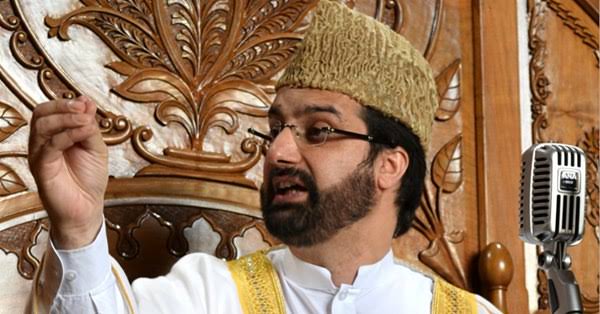Calls for Protection of Waqf Rights, Urges Reinstatement of Traditional Custodians Stresses on Holistic Role of Mosques as Centers of Worship, Community, and Social Justice Mirwaiz Umar Farooq delivered a sermon at the revered shrine of Sheikh Abdul Qadir Jeelani in Khanyar. He highlighted the teaching of Sheikh Abdul Qadir Jeelani (REH), specially focusing on his concept of Tawheed (the oneness of Allah) in Islam as the means to strengthening one’s relationship with the Creator (Ta’alluq billah). Mirwaiz said that it is the strength of this relationship with the creator that defines a Muslim and his conduct with others in this world.
Highlighting the holistic role and importance of mosques, he said that mosques in Islam are not simply places of worship but vibrant centers of interaction integral to Muslim communities, supporting their religious, social, economic, and political affairs, following the example set by the Prophet Muhammad (peace be upon him) in his time. So people should reinforce and strengthen these community centers available to them and build a robust, just, and compassionate society for all.
Expressing concern over the challenges faced by Muslims globally and domestically, Mirwaiz spoke about the grave situation and suffering in Palestine, expanding to the Middle East, which is paining not only to Muslims but all humanity. He also raised concern on the plight of Muslims in India being harassed and living under constant fear. He pointed to incidents of lynching of Muslims, bigotry, and so-called “bulldozed justice” razing their homes and mosques and urged the rulers of the day to cease discriminatory policies targeting the community and treat them as equal citizens.
On the Waqf Amendment Bill, which has been referred to JPC, Mirwaiz said that Muslims are closely watching it, and any attempt to weaken the Waqf or disempower the Muslim community would be resisted. With regard to the working and management of JKWaqf board, Mirwaiz acknowledged that accountability of institutions is very important but it cannot justify the isolation of individuals, that is, the Imams, Sajadanisheens, and mutawalis who have traditionally been associated with and served the mosques and shrines for generations. He said Waqf, by definition being a trust of Muslims, should involve the community in such decisions. He asked the Waqf management to reconsider its decision and reinstate these people in the functioning of the shrines and mosques.




